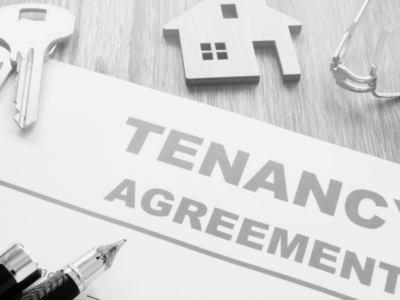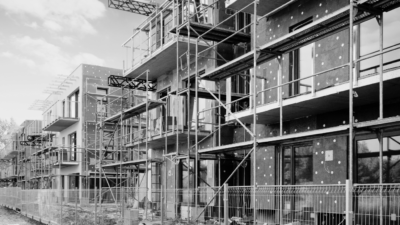There is an old adage, often heard upon the existence of an insurance policy, along the lines of “it is okay, it is covered by the insurance”.
This overly simplistic take is one that often fails to take into account all issues surrounding the scope and extent of any policy cover in place.
Perhaps this has never been more apparent than in the current economic climate where society and businesses alike are being impacted by supply chain shortages and increased prices for materials.
These factors have been significantly contributed to by both Brexit and the ongoing global COVID-19 pandemic. One needs to look no further than the recent lengthy queues at the petrol station forecourts to see the evidence of this.
But what does this mean for stakeholders in property, such as insurers, suppliers, brokers, and policyholders?
Underinsurance
One of the biggest risks presented by these particular issues is underinsurance.
In the words of the Financial Conduct Authority: there is already “an alarming degree of underinsurance” for both UK businesses and consumers, creating issues throughout each area of the property sector.
What some may be unaware of, is that it is the responsibility of policyholders and, in some instances, their brokers to ensure that they take out sufficient levels of cover for the insured risk when incepting a policy of insurance.
Failure to take out a sufficient level of cover can have devastating consequences for policyholders, resulting in significant reductions to any insurance pay-outs made, and in the worst case scenario, may potentially even result in policy avoidance.
By way of practical example, imagine that the insured’s premises is destroyed by a large fire.
If the rebuild cost of the premises is £200,00 but the insured has only insured them for £100,000, they will be underinsured by 50%. The effect of an average clause in the policy may therefore be to reduce the sum insured by 50% leaving the policyholder with an insurance payment of just £50,000.
In these circumstances, any comment that the claim is “covered by the insurance” is clearly well wide of the mark and the insured could be left in a position whereby they are without any premises, and potentially out of business.
Whilst the example refers to the reinstatement of a building, underinsurance principles can apply equally to all insured losses.
It is therefore critical that the cover levels taken out at inception and renewal accurately reflect the risk.
In real terms, reference to online calculators, market prices, or using a “best guess” to estimate the true costs of the reinstatement of a property may not be sufficient at the best of times, but such an assessment is now made all the more difficult by the uncertainty created by Brexit and the pandemic.
Brexit & COVID-19 Impacts
The UK’s decision to leave the EU has adversely affected the sourcing of materials and the available labour which had previously relied heavily on its ties to Europe.
Any fall in value of the pound against the euro or the dollar is also going to result in increased costs for the importation of materials and plant and machinery.
This has been exacerbated by the pandemic which has resulted in the closures of a number of manufacturing plants. With employees having to self-isolate or limit their interaction in workspaces, businesses have seen a reduction in access to workers available to service any orders.
In short, this is likely to result in a delay in materials being produced and supplied, an increase in the costs of those materials, and a lack of physical labour, especially in the number of delivery drivers.
All of these issues will continue to have a natural impact on the construction and insurance industry, due to the increased time and costs necessary to repair and reinstate premises damaged by insured perils.
Not only are we seeing an increase in the cost of materials, the length of time necessary to affect the reinstatement of the properties is also increasing.
This can have knock on consequences for additional elements of insurance cover, such as Business Interruption, and the adequacy of any insurance taken out to cover these losses.
There is also potential for insured businesses to stockpile goods in anticipation of issues associated with the supply chains.
This can present its own risks of underinsurance with businesses having significantly more amounts of stock that they might ordinarily otherwise have when the insurance was taken out.
Furthermore, the value of that extra stock held might have changed due to the external economic climate and pressures.
What Can Be Done?
Whilst there is little doubt that the well-publicised consequences of Brexit and the pandemic are well known to most, the question arises:
What is being done about it?
Can policyholder’s honestly claim that their cover levels have been adjusted to reflect these risks?
It is unlikely that many will be able to say yes.
The impact of Brexit and the pandemic has moved property supply chains and insurance into an ever-changing and uncertain world.
As such, for policyholders, it is crucial to review new and active insurance policies with these variables front of mind; as when push comes to shove, they will be the ones taking the brunt for inaccurate or an ineffective and poorly considered insurance arrangement.
With Brexit and the pandemic still active and continuously moulding the UK’s economic future, planning and caution will be paramount to avoiding the potentially catastrophic consequences of underinsurance.





















I have checked the level of rebuild cost on all my properties- on average costs are 40% higher than initial cost at time of policy but how do you alter the insured value on an existing policy .esp direct line not simple And some insurance co dint let you ad a value at start – Halifax . Others say they’ll take care or inflation – can’t trust that statement..
Mind yiu I think saga said£1.5 m fur a simple 4 bed detached . 140m2 estate house which is probably 6 x true cost ..
I think even being proactive you can’t fix this one any ideas ..
Excellent article Liam – an issue that many are overlooking right now with potentially devastating consequences.
Regards,
Ewan